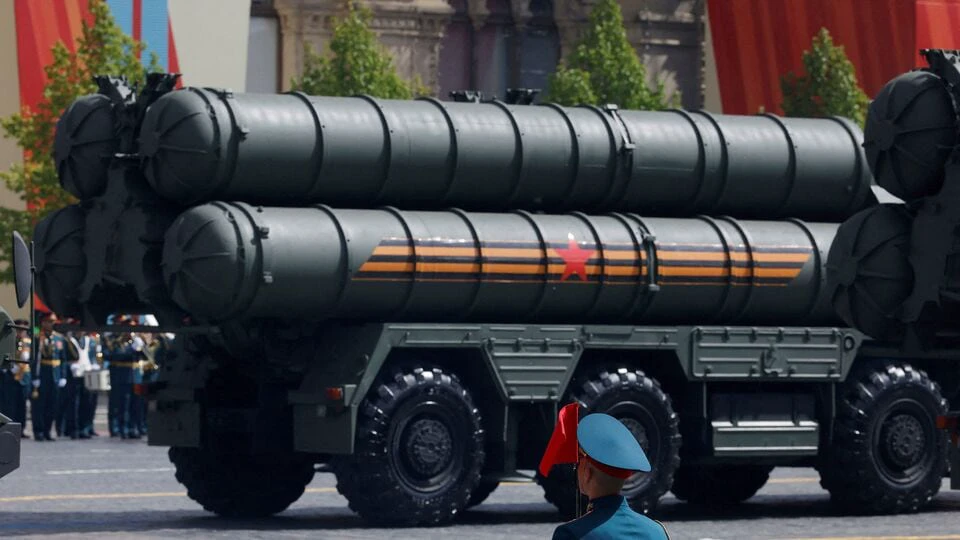Moscow and New Delhi are in talks to boost deliveries of Russian S-400 surface-to-air missile systems to India, TASS news agency reported, citing a senior Russian defence export official.
“India already has our S-400 system,” TASS quoted Dmitry Shugayev, head of Russia’s Federal Service for Military-Technical Cooperation, as saying. “There is potential to expand our cooperation in this area as well. That means new deliveries. For now, we are in the negotiation stage.”
The S-400 air defence systems were also a key component in Operation Sindoor, India’s military operation in May targeting terrorist infrastructure in Pakistan and Pakistan-occupied Kashmir (PoK).
India signed a $5.5 billion deal with Russia in 2018 for five S-400 Triumf long-range surface-to-air missile systems. But deliveries of the systems have been delayed several times. Moscow is expected to deliver units of the final two S-400 systems to India in 2026 and 2027.
The S-400 Triumf, developed by Russia’s Almaz Central Design Bureau, is widely regarded as one of the most advanced and formidable surface-to-air missile (SAM) systems in the world. Introduced into service in 2007, the S-400 is designed to provide a multi-layered air defence shield capable of intercepting a broad spectrum of aerial threats, including fighter jets, ballistic and cruise missiles, drones and stealth aircraft.
During a meeting on the sidelines of the Shanghai Cooperation Organisation summit in China, Prime Minister Narendra Modi told Russian President Vladimir Putin on Monday that India and Russia have supported each other even in tough times. Putin referred to Modi as his “dear friend.”
Russian Foreign Minister Sergei Lavrov, in comments published Wednesday, noted that India resisted U.S. pressure to stop buying Russian resources, a stance Moscow “appreciated.”
Data from the Stockholm International Peace Research Institute shows that between 2020 and 2024, Russia supplied 36% of India’s arms imports, followed by France at 33% and Israel at 13%.
Cheaper Russian oil for India
Indian refiners have resumed purchases of Russian oil after a brief pause in early August, and the lower prices for Urals are expected to drive strong demand. Last week, Urals was offered at a discount of about $2.50 per barrel, wider than the $1 discount seen in July, while US crude, recently purchased by some Indian refiners, came at a $3 premium.
From August 27 to September 1, Indian state-run and private refiners received about 11.4 million barrels of Russian crude, according to Kpler data and port agent reports, Bloomberg reported.
Urals is Russia’s main crude grade, shipped from its western ports. China remains the largest buyer of Russian oil, importing it via both pipelines and tankers, and has not faced the same international criticism as India over these purchases.
Meanwhile, PM Modi and Russian President Vladimir Putin’s bonhomie was on full display at the Shanghai Cooperation Organisation (SCO) Summit in Tianjin, China. The two leaders shared warm moments, including a heartfelt hug and a ride together in Putin’s official Aurus Senat limousine to their bilateral meeting.
The video of Modi and Putin holding hands and walking towards Xi, and then all three forming a close circle as close friends to engage in some conversation, went viral on social media. In his address, Modi spoke elaborately on the need for unity to combat the scourge of terrorism and even tried to corner Pakistan for its relentless support of cross-border terrorist activities.
Putin said the SCO brings together like-minded partners committed to “shaping a just, multipolar world order” and the bloc is laying the “political and socioeconomic foundations for a new system of stability, security and peaceful development in Eurasia – a system that would replace outdated Eurocentric and Euro-Atlantic models”.
It said the member states support the further improvement and reform of the global economic governance architecture and will consistently uphold and strengthen an open, transparent, fair, inclusive, non-discriminatory and multilateral trading system based on rules promoting the development of an open global economy.
